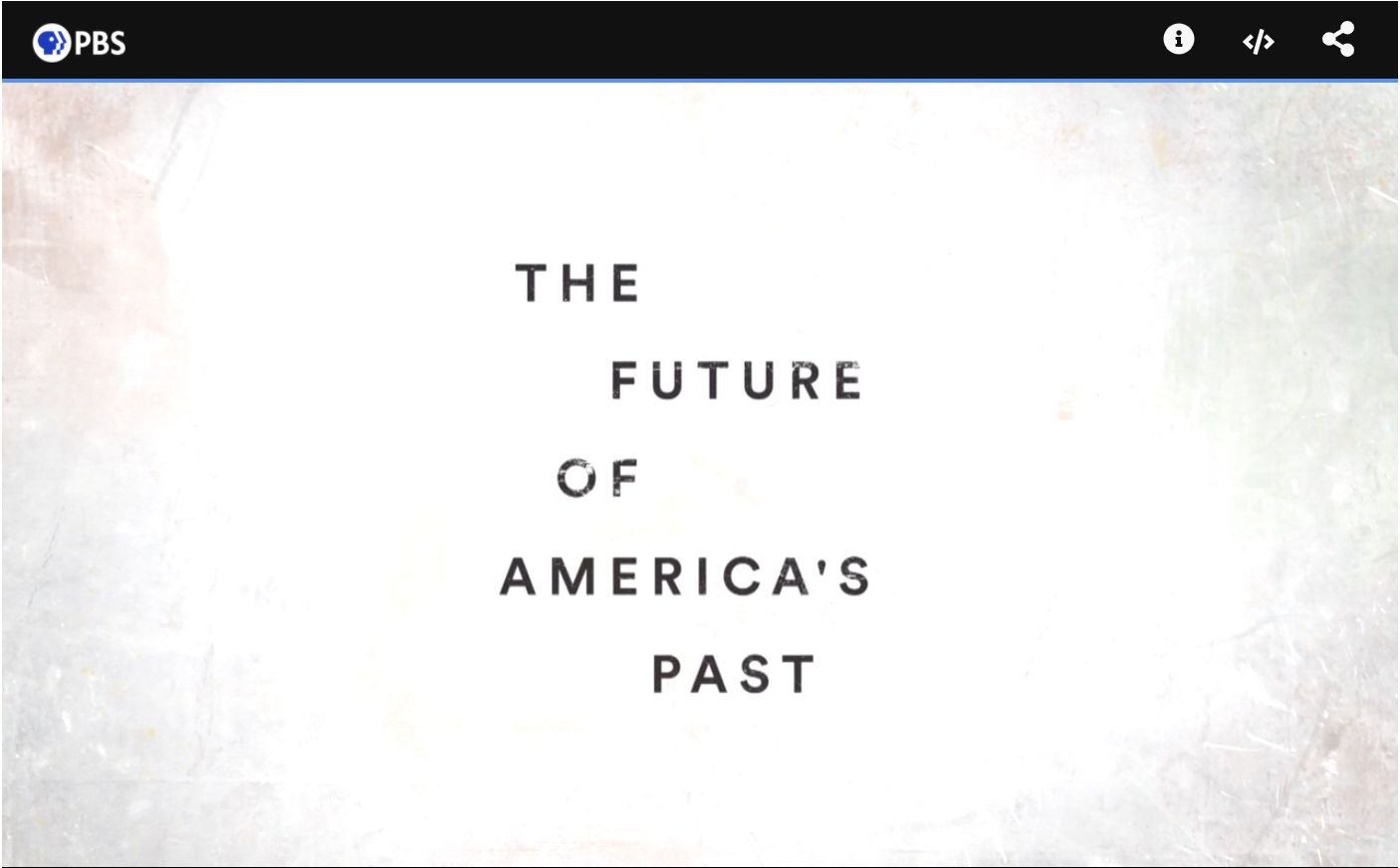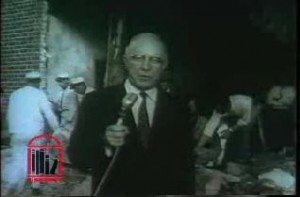On the May 17th anniversary of the Brown v. Board of Education Supreme Court decision that ruled against segregation in public schools, we are pleased to report that civil rights content from the Walter J. Brown Media Archives and Peabody Awards Collection and the University of Georgia Libraries, available in the Civil Rights Digital Library and the Digital Library of Georgia were included in “School Interrupted,” an episode from the second season of the PBS series “The Future of America’s Past.”
This content includes:
- a photograph on page 8 of the April 1, 1960 issue of the Southern School News with the caption, “Negro training centers open at Prince Edward,” available at Published between 1954 and 1965 by the Southern Education Reporting Service, an agency of Southern newspaper editors and educators, the Southern School News reported on desegregation in seventeen Southern and border states.
- footage from a WSB-TV newsfilm clip dated July 27, 1962, that includes scenes related to the closure of public schools and education for African Americans in Prince Edward County, Virginia. The WSB-TV collection consists of over 5 million feet of newsfilm from WSB-TV in Atlanta, Georgia, and coverage of national civil rights events, such as those in Prince Edward County, Virginia.
On May 17, 1954, the United States Supreme Court in the Brown v. Board of Education case ruled against segregation in public schools. That case included a case against segregated education that was brought against Prince Edward County in 1951. After the Brown ruling, Virginia state officials instituted a plan of “massive resistance” to court-ordered integration, passing laws to close integrated schools and provide tuition grants to displaced white students. After both state and federal courts overturned the school closing law in January 1959, governor J. Lindsay Almond called a special legislative session and announced the end to the state’s policy of massive resistance. That fall, leaders in Prince Edward County chose to close the public school system rather than allow integration. White citizens established the Prince Edward School Foundation as a private school system for the 1,500 white school children in the county. The 1,700 African American schoolchildren were left without educational opportunities in the county. Some were sent to live with relatives in other parts of Virginia and attend classes there, some began college early, and some accepted arrangements to attend school in other states; most remained out of school until the fall of 1964 when federal courts ordered Prince Edward County to reopen its public school system.
In the episode “School Interrupted,” the program highlights a student strike in Prince Edward County that followed the Brown v. Board of Education ruling. The program’s host, Ed Ayers, learns about the drama that unfolded through conversations with two of the student strikers. He discovers how black women activists defied the school closures by starting grassroots schools, and he meets an author whose grandfather helped start the whites-only “segregation academy” Prince Edward Academy. In a museum at the school that started it all, Ed Ayers talks with a descendant of strikers who inspires students today to take up the fight for justice.



